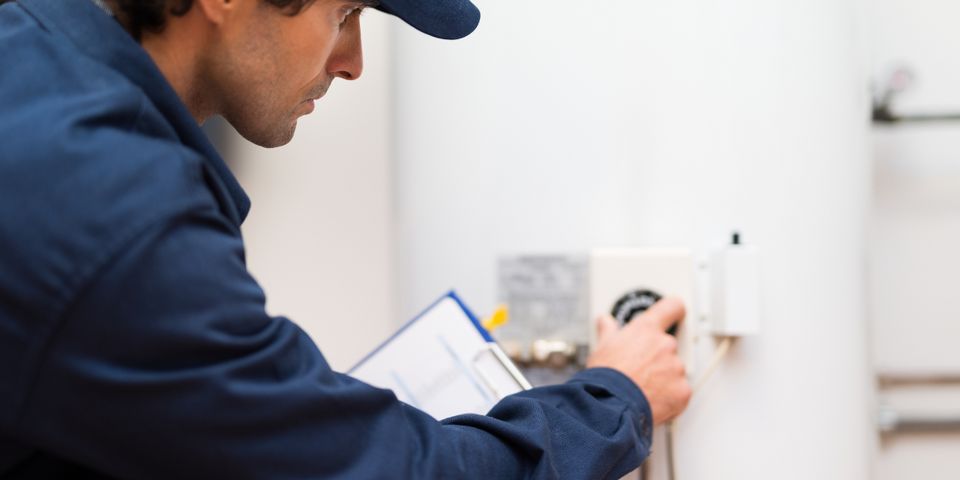Addressing the Most Frequent Hot Water Heater Emergencies
Addressing the Most Frequent Hot Water Heater Emergencies
Blog Article
The publisher is making a few good annotation regarding The Importance of Water Heater Maintenance as a whole in this article down the page.

A hot water heater is among one of the most important fundamental devices that can be found in a house. With hot water heater, you do not need to undergo the anxiety of home heating water by hand every time there is a requirement to take a bath, wash, or the dishes. There is always an opportunity that your water heating system would certainly act up as with the majority of mechanical tools.
It is important to keep in mind any type of little malfunction and tackle it quickly before points get out of hand. Most times, your water heater starts to malfunction when there is a build-up of sediments as a result of continuous use. As a safety measure, routine flushing of your hot water heater is advised to stop debris build-up and also protect against practical failure.
Common hot water heater emergency situations and just how to manage them
Insufficient hot water
Dealing with a not enough supply of hot water can be frustrating. It might be that the water heater can't sustain the warm water demand for your home. To deal with this issue, you could attempt to adjust your heating system's temperature dial and also wait on a couple of minutes. If the issue lingers, you can request for the assistance of a professional plumber. Conversely, you might upgrade your hot water heater to one with a larger ability.
Varying water temperature level.
Your water heating unit might begin producing water of various temperature levels normally ice hot or cold hot. There might be a demand to replace either the thermostat or the heating system of your water heater.
Dripping water heater storage tank.
In this situation, you should turn off your water heating system, permit it to cool down, and also very carefully look for the source of the problem. At times, all you require to do is to tighten up a few screws or pipe links in situations of minor leakages. If this doesn't function as well as the leak lingers, you may need to utilize the services of a technician for an ideal substitute.
Discolored or stinky water
When this happens, you need to know if the problem is from the storage tank or the water resource. If there is no funny scent when you run cold water, then you are certain that it is your hot water heater that is damaged. The smelly water can be triggered by corrosion or the buildup of microorganisms or debris in the hot water heater storage tank. When you observe this, you can try flushing out your storage tank or replacing the anode if the problem lingers. The function of the anode is to clean germs from your tank. Given that the anode pole replacement calls for a detailed knowledge of your water heating system, you will certainly need the assistance of an expert.
Conclusion
Some homeowners disregard little caution as well as minor faults in their water heater system. This only causes more damages as well as a feasible total malfunction of your home appliance. You ought to take care of your water heater faults as soon as they come near prevent more expenses and also unneeded emergency difficulties.
With water heaters, you do not require to go through the stress of home heating water manually every time there is a demand to take a bath, do the laundry, or the meals. It may be that the water heating system can't sustain the hot water demand for your house. Your water heating unit can begin generating water of various temperatures usually ice cool or hot warm. If there is no funny odor when you run cold water, then you are specific that it is your water heater that is malfunctioning. The stinky water can be triggered by rust or the build-up of germs or sediments in the water heater storage tank.
Common Water Heater Issues and What You Should Do
What Type of Water Heater Do You Have?
Before we begin it’s first important that you identify the type of water heater you have on your property. There are two main types of water heaters out there: conventional and high efficiency.
Both of these types of products typically use either gas or electricity to heat power. There are also solar water heaters that use a thermal collector on the roof or yard to heat the water.
While these models are not as common, they can cut heating costs in half. In this article, we will focus on conventional and high efficiency.
How Do My Electric and Gas Water Heater Work?
Though they look similar, electric and gas water heaters work very differently. It’s important to know their basic function because often problems can be specific to the heating source.
In the electric model, a thermostat on the side of the machine detects the temperature of the water in the tank. When the temperature needs to rise electricity flows to a heating element suspended in the water.
Gas models also use a thermostat device — typically with a mercury sensor at the tip and an additional sensor called a thermocouple. The thermocouple detects whether the pilot light is on and controls the flow of gas.
When the thermostat drops below the appropriate level gas is released which becomes ignited by the pilot light. The flame heats the bottom of the water tank which causes hot water to rise and cold water to drop.
This natural circulation continues until the water reaches the desired temperature. Then, the thermostat triggers the gas control valve to shut off the flow of gas.
What Are the Most Common Issues and How Do You Fix Them?
https://happyhiller.com/blog/common-water-heater-issues-and-what-you-should-do/

I was shown that write-up about Common Hot Water Heater Problems through an acquaintance on a different website. Sharing is good. You just don't know, you will be helping someone out. Thank you so much for your time invested reading it.
This Page Report this page